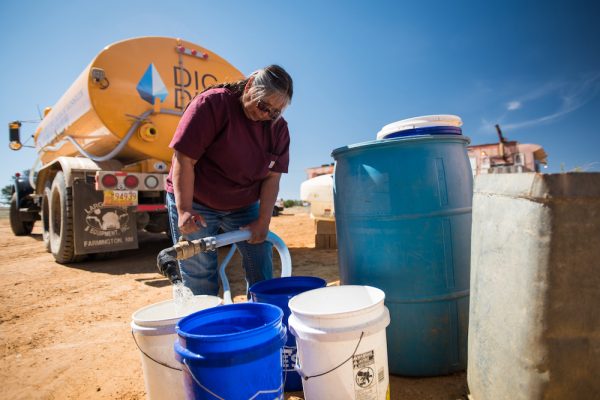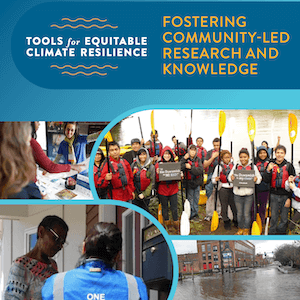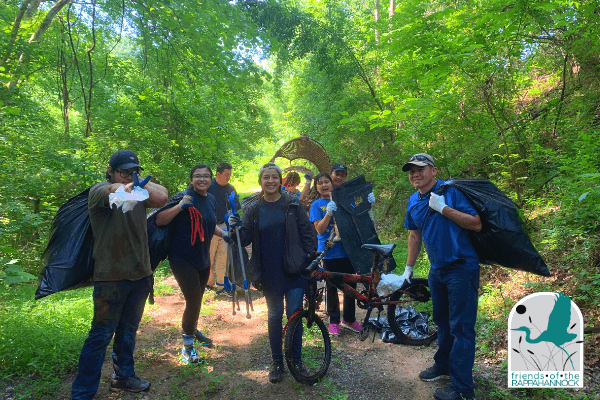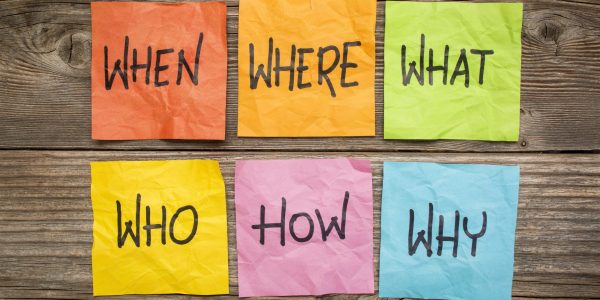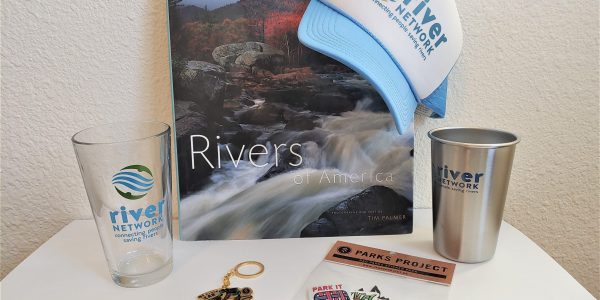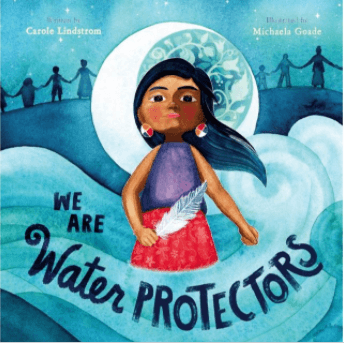River Voices: March 2021

Welcome to the March 2021 edition of River Voices. This month, we’re exploring how individuals, organizations, and communities can achieve more by working together and introducing the new “Community-Led Research Toolkit for Equitable Climate Resilience .” Plus, apply for a River Rally scholarship before the deadline on March 12!
In river protection and water advocacy, much of our work is hard-wired to geography and community: the footprint of a particular river, an area of restoration or protection, a dam to be removed, or a community with inadequate access to safe, clean, affordable drinking water. As the number of water protectors grows, we must explore how we can support Indigenous partners and where we can work together towards shared goals and solutions.
“We said ‘if they’re not going to lead then we’re going to lead.’ We raised enough money to buy our own water truck and we’re going to keep working and standing in the gap of the failed system.”
2021 River Hero Ean Thomas Tafoya discusses access to water for the unhoused and how art is incorporated into his community organizing work with GreenLatinos.
The new Community-Led Research Toolkit for Equitable Climate Resilience provides step-by-step guidance and lessons learned on how to effectively engage with community members to understand climate impacts and to develop more equitable climate resilience strategies.
This toolkit includes real-world case studies, a planning and facilitation guide, and extensive resources.
Meet Gary Collins, River Network board member and member of the Northern Arapaho Tribe.
Gary is the Vice President of the MNI SOSE InterTribal Water Rights Coalition and a founding member of the Indigenous Water Network. Gary is also instrumental to his family ranching operation, which has operated since the early part of last century.
River Network and WaterNow Alliance are excited to announce that three community groups and water systems have been selected to receive Partnership-Building Technical Assistance Grants. These groups represent a diverse range of communities and challenges and will receive technical support to grow their partnerships and pilot trust-building best practices. It is our privilege to work with the selected cohort over the next several months to develop and deploy their initiatives, with generous support from Spring Point Partners.
“Often, when faced with the many ways the organization can address the needs of its community, [organizations] become reactive rather than proactive. River Network has found that sustainable and effective organizations have this key shared characteristic: the ability to carefully and intentionally plan.”
Brenna Goggin, Leadership Development Manager at River Network, reflects on organizational sustainability in the context of the Building Strong Champions program.
Leading up to River Rally 2021, registrants will be entered to win a River Rally prize box with standard items and one special item of their choice! Winners will be randomly selected from the pool of River Rally 2021 registrants over six weeks, with the first drawing taking place on Friday, March 5.
Check out the River Rally 2021 program and register early for your best chance to win! Interested in a River Rally scholarship? The deadline to apply is March 12.
Events & Learning Opportunities
Tools for Equitable Climate Resilience
Mar 8, 2p ET
During this roundtable, we will share River Network’s new Community-Led Research Toolkit, hear real-world case studies, and explore the applications to your work. This new toolkit was developed for network members who asked for step-by-step guidance and lessons learned on how to develop community resilience strategies.
Register today and watch recordings from previous virtual roundtables.
Environmental Justice and Systemic Racism Series
Mar 4, 12p ET
The EPA’s Environmental Justice and Systemic Racism Speaker Series will illustrate how addressing systemic racism is highly relevant to the missions of the Environmental Protection Agency and other environmental agencies. Future topics will include Title VI and civil rights program, EJ research and analysis, rural inequities, and others.
Great Rivers of the West Series, Live!
Mar 6 – Apr 21, 6-6:45p PT
Join the Western Rivers Conservancy for this online series featuring photographer Tim Palmer who will take viewers on a visual journey to dozens of rivers in the western United States. Each episode in the presentation schedule will tell you what these rivers are all about. Register once and watch a single episode or tune in for all eight!
Action Days for Clean Water and Rivers
Apr 27-29
Join American Rivers, River Network, and fellow advocates to meet virtually with members of Congress and ask them to support policies that will ensure clean water and healthy rivers for all communities. Whether you have never spoken to a member of Congress or if you are a seasoned advocate, you are welcome and encouraged to attend.
Join the Online Community
River Network’s new online community launched at the end of January and is already hosting conversations about civic engagement, microplastic pollution, and tribal engagement. Join the community to connect with peers, share opportunities, address challenges, and foster partnerships for shared impact.
AARP “Quick-Action” Grant
Apply for a small grant to fund your project that will help communities become more livable for people of all ages. Applications are accepted for projects to improve public spaces, housing, transportation, civic engagement, coronavirus recovery, diversity and inclusion, and more. Apply by April 14.
Partners for Places Grants
Partners for Places aims to enhance local capacity to build equitable and sustainable communities in the United States and Canada. The next round of matching grant program opportunities for urban sustainability and green stormwater infrastructure projects is now open. Apply by March 19.
 Science Corner: Science at Our Public Agencies
Science Corner: Science at Our Public Agencies
The latest from our science team.
Many local groups who collect environmental data and information do so with the goal of informing management decisions. Environmental agencies at the state and federal level can use community-generated data and information, and some actively collaborate with groups to collect and put this data to use. For instance, the National Oceanic and Atmospheric Administration (NOAA) recently finalized their Citizen Science Strategy, aimed to build on the agency’s efforts to engage the public in scientific research (learn more about this new strategy in a March 16th webinar sponsored by the Citizen Science Association). Additionally, the Environmental Law Institute (ELI) recently took a big-picture look at the strategic steps agencies can take to support community science in decision making. ELI produced a series of three reports identifying how agencies are using community science, recommending best practices, and making specific recommendations to the Environmental Protection Agency on this topic.
To see how your state uses and deploys a range of practices to support, standardize, and move community-collected data to action, visit this story map, “How States and Natural Resource Agencies Support Community Watershed Science,” which River Network produced as part of our work with the Water Data Collaborative.
What We’re Reading & Watching
Voice from the River — Meet 2020 Compton Award recipient Daryl Vigil (Jicarilla Apache, Jemez Pueblo, Zia Pueblo) and hear about his relationship to water and COVID-19’s impacts.
We Are Water Protectors — Inspired by the many Indigenous-led movements across North America, We Are Water Protectors issues an urgent rallying cry to safeguard the Earth’s water from harm and corruption—a bold and lyrical picture book written by Carole Lindstrom and vibrantly illustrated by Michaela Goade.
How To Participate In Citizen Science During A Pandemic — from Science Friday, find new opportunities to find purpose, community, and even escape as you support research efforts.


